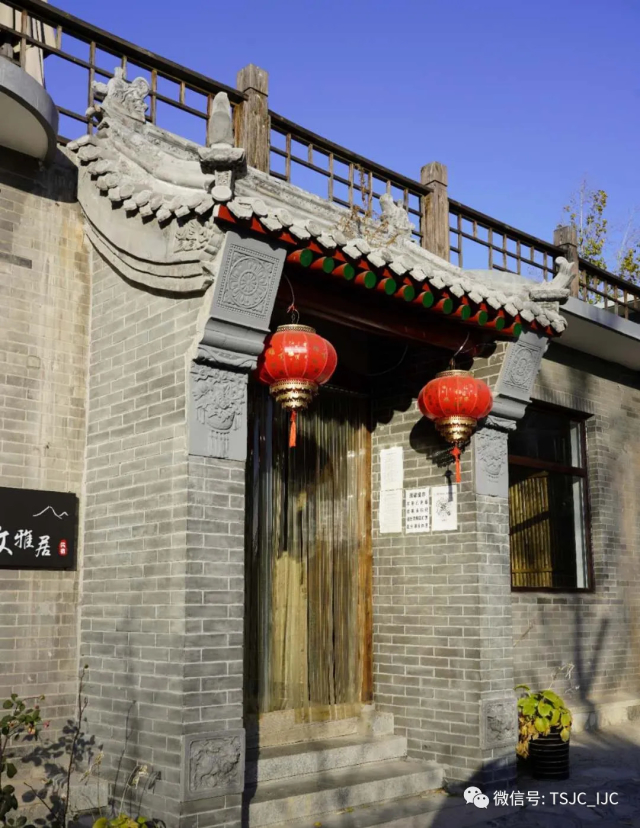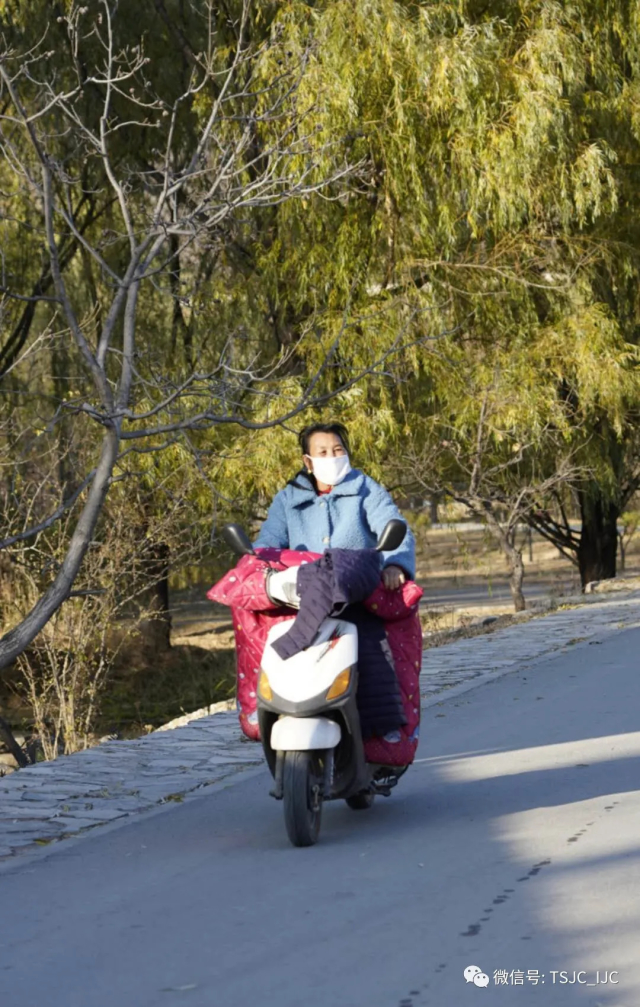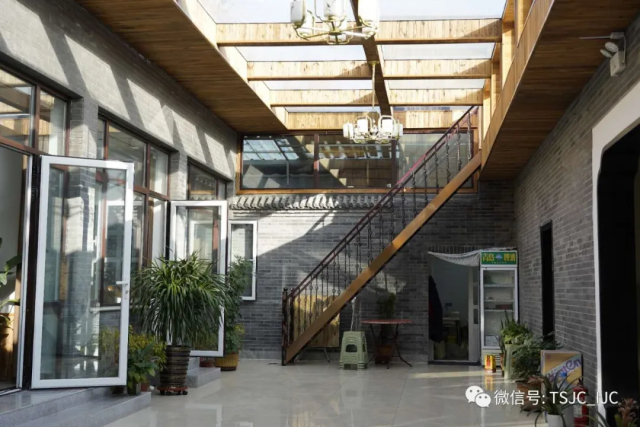03
2020.11
Walking into the first farmhouse on the right side of the village’s main road, guests are immediately greeted by two bright red lanterns and a row of Guqin hanging on the wall, a seven-stringed plucked instrument similar to the Chinese zither.
The farmhouse owner Zhang xiuyun, now in her 60s, was one of the first landlords in the village running farmhouses for urban guests and earned a stable and solid income from agritourism every year. Dressed in a red checked apron with a pair of gold earrings, Zhang was proud of her redesigned and newly decorated farmhouse.

In Guo Jia Gou Village, there were altogether 43 landlords like Zhang, who were average farmers turned into guesthouse owners. Located in the outskirts of Tianjin Municipality, the village was once a poverty-stricken area. It had been revitalized thanks to its successful transition to an agritourism base for urban residents since 2008, with a strong push from the government’s poverty alleviation campaign.
“The fresh air and the natural beauty of the village are attractive to many urbanities,” said Guo Shida, a village official, “the quaint rural village with comfortable farmhouses to stay in and a nearby reservoir to visit are luxurious for many city people. They come here to spent a weekend or holidays away from pressures.”
The village mainly welcomed city dwellers from Tianjin, Beijing and Hebei Province. It also incorporated its rural tourism with the idea of sustainable development and initiated a new ecotourism development model since 2012.
The village received about 250,000 visitors in 2018 and reaped 27 million yuan (more than 4 million U.S. dollars) in revenues, with an average net income of 76,000 yuan (more than 11,000 U.S. dollars) per capita. It provided a variety of residential choices for visitors, ranging from economic rooms at less than 200 yuan per night to high-end ensuites over 1,000 yuan per night. In 2020, the tourism revenues in this village only dropped slightly against the background of Covid-19 pandemic.
The idea of agritourism was first brought to the village by its former official Mr. Zhang, who had traveled to other counties and learned from their experience. As early as 2008, he saw an increasing demand for agritourism and a possible future for the village.

Zhang Xiuyun was one of the first three villagers who showed interest in this “bold” idea. Zhang had spent most of her life working in the field, and had tried to find temporary jobs in the city.
“Farm work is very laborious and barely profitable. You only earn an annual income of 10,000 to 20,000 yuan,” said Zhang. “Leaving the hometown is not a good choice either.”
Zhang was enthusiastic about the idea of making fortune from agritourism and was willing to go all out. Her husband who always pursued a stable life was not supportive and she had to take all the work and risks on her own. Anyway, Zhang decided to be a “daredevil”. “I was in my 40s, young and energetic, and I wanted to try something new to change my life, to make money”
Starting off wasn’t easy. Only a few visitors came. It was Zhang alone who took care for everything from furnishing the house to food and accommodation for guests.

With “comfortable and convenient facilities” and “high-quality service”, Zhang gradually earned good reputation from her guests, who would recommend her farmhouse and service to family and friends and became returned customers.
“My farmhouse and service aren’t based on advertising hype, they sell by word of mouth.”
In 2012, the government introduced more favorable policies and improved the infrastructure in the village to generate economies of scale. It aimed to reconstruct Guo Jia Gou Village into a well-organized and well-resourced tourist attraction.
Zhang was quite a successful model in the village. To gain a comparative advantage over other farmhouses, she redecorated the house earlier this year to keep up with the latest fashion and accommodate to the popular “bed-and-breakfast” style. She invited a Korean designer to design for the facade and applied traditional Chinese decorations in the interior. The farmhouse included 3 suites and 2 double rooms, which could accommodate up to nearly 30 people.
“The design of the house has a very artistic touch and Mrs. Zhang is an excellent cook,” said Mr. Guan, a guest from Beijing. “I will bring my family and friends here next time.”
Even until today, Zhang still insisted on cooking for her guests all by herself and was proud and pleased when people praised her cooking and her easy-going character.

2025.12.16 15:15
16
2025.12
16
2025.12
16
2025.12
 28:32
28:32
2025.06.19 08:55